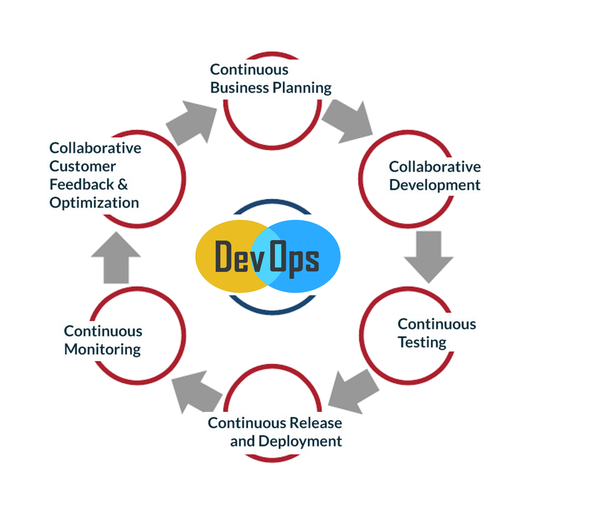
- July 26, 2021
- ksolutions
- 0
In general, Devops is what people call it as the collaboration of Development and Operations Activities to achieve the fastest reliable releases. In technical terms, we say that Devops is a software development approach which involves Continuous Development, Continuous Testing, Continuous Integration, Continuous Deployment and Continuous Monitoring of the software application throughout its development life cycle.
If there’s an uncertainty that why we actually need Devops, I’d say these reasons:
• Increases Deployment frequency
• Lowers failure rate of new releases
• Shortened lead time between fixes
• Faster mean time to recovery in the event of new release failure To make our lives easier, a lot of tools are used for automation during the development & operations process and these are called as ‘Devops Tools’.
Depending on the project infrastructure, requirements and standardization, tools can be prioritized and can be picked accordingly. Most commonly used tools are Git, Jenkins, Docker, Kubernetes, Maven, Ansible, Selenium, Puppet, Nagios etc.

Before knowing about the Devops tools, Let’s discuss some of the key responsibilities of a Devops Engineer:
1. Administration of IT Infrastructure
2. Choosing the right deployment modules
3. Conducting the testing protocol and critical monitoring
Here are a few things about tools which play a major role in Devops:
Git:
Git is a Distributed Version Controlling (DVC) system. It leads you track changes made for file and allows you to revert back to any particular change that you wish to. More precisely, It is a distributed architecture that provides many advantages for other Version Controlling systems like the SVN. One of the major advantages is that it does not rely on central server to store all the versions of project files.
Jenkins:
Jenkins is an open source automation server written in Java. Jenkins help to automate the non-human part of software development process with continuous integration, and facilitating technical aspects of continuous delivery.
Docker:
Docker is a technology where you make an image of your application along with the environment setup. Docker provides a container environment which can be used to host any application of your choice. The software application and the dependencies which support it, are tightly packed together and this packaged product is called as Docker Container.
Selenium:
Selenium is a portable software-testing framework for web applications. Selenium provides a playback tool for authoring tests without the need to learn a test scripting language.
Ansible:
Ansible is an open source IT Configuration Management, Deployment & Orchestration tool. This tool is very simple to use yet powerful enough to automate complex multi-tier IT application environment. Ansible uses a simple syntax written in YAML called playbooks. So, no special coding is required to understand and execute tasks.
So, this is how Devops approach gives the organisations an opportunity to increase the quality of S/W Dev & Deployment process.
About the Author
Rakesh Yelmeti is a Devops Professional working at Infiwave Solutions. He’s a systematic Software Engineer with more than 4 years of expertise in Devops Technologies and AWS. He is a pro at learning and mastering new technologies while working both, in team and self-directed environments. He specialises in continuous delivery through identifying value streams, creating build pipelines, and implementing effective testing strategies.

